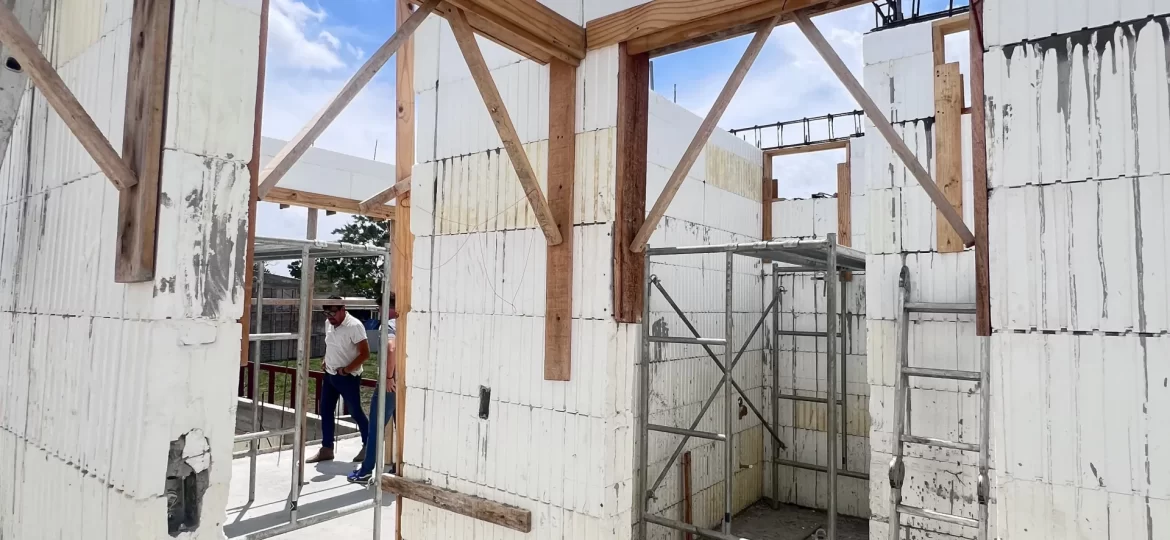
When it comes to building your dream home, the materials and methods you choose will define not only the structure’s durability, but also its energy efficiency, comfort, and long-term value. Two popular approaches today are ICF (Insulated Concrete Forms) and traditional construction methods like concrete blocks or wood framing. But how do they really compare? Here’s what you need to know before making your decision:
1. Structural Strength & Durability
ICF:
ICF construction consists of interlocking foam blocks filled with reinforced concrete. This system creates a solid, monolithic wall that is incredibly strong and can withstand extreme weather, seismic activity, and time.
Traditional Construction:
Conventional methods like concrete block or wood frame can be strong but often require additional reinforcement and can be more vulnerable to environmental challenges such as humidity, pests, or high winds.
Winner: ICF for superior strength and resistance.
2. Energy Efficiency
ICF:
With built-in insulation on both sides of the wall, ICF dramatically reduces energy consumption. It keeps interiors cooler in tropical climates and warmer in cold conditions, helping to lower utility bills.
Traditional Construction:
Standard walls require added insulation materials, and even then, they rarely match the thermal performance of ICF. Thermal bridges and air leaks are more common.
Winner: ICF for unmatched thermal insulation and energy savings.
3. Construction Time & Labor
ICF:
Once the team is trained, ICF can actually speed up construction. The system is designed to be modular, reducing the need for multiple materials and steps.
Traditional Construction:
Building with blocks or wood framing usually involves more steps, different teams for each stage, and longer timelines.
Winner: ICF for efficiency and simplicity in execution.
4. Sustainability & Long-Term Value
ICF:
Thanks to lower energy usage and long-lasting performance, ICF homes are more sustainable over time. Some systems are also made with recycled materials.
Traditional Construction:
While traditional methods can be eco-friendly, they typically don’t match ICF’s performance unless enhanced with additional sustainable features—at higher costs.
Winner: ICF for a greener, smarter investment.
5. Design Flexibility
ICF:
Modern ICF systems are highly adaptable, allowing for custom designs, curves, high ceilings, and even features like rooftop gardens or jacuzzis—without compromising structure.
Traditional Construction:
Traditional systems can accommodate many designs but may require additional structural work for complex features.
Winner: ICF for design freedom without structural compromise.
Final Thoughts: Is ICF Right for You?
If you’re looking for a construction system that combines strength, efficiency, comfort, and sustainability—ICF stands out as a smart, future-ready choice. Whether you’re building a family home, a vacation villa, or an investment property, the long-term benefits of ICF often outweigh the slightly higher upfront cost.
At OKO Hausen, we specialize in building with ICF technology to deliver Tomorrow Homes—modern, energy-efficient, and built to last in the unique climate and terrain of Costa Rica.
Have questions about building with ICF?
Contact our team and discover how we can help you bring your vision to life.
Santa Ana, Costa Rica
www.okohausen.com
+506 8729 0868
consultas@okohausen.com
